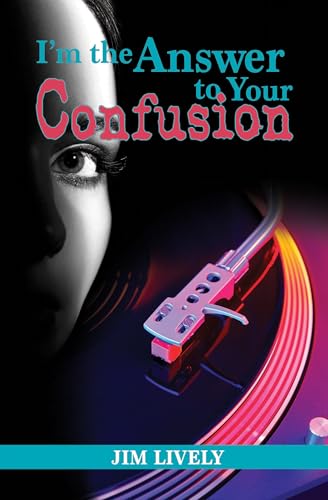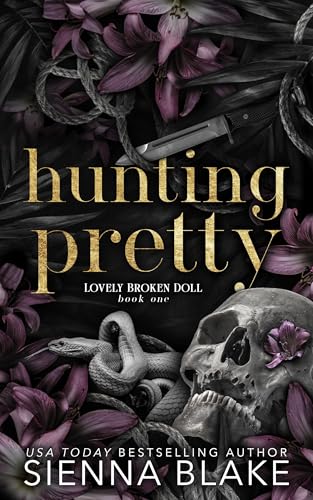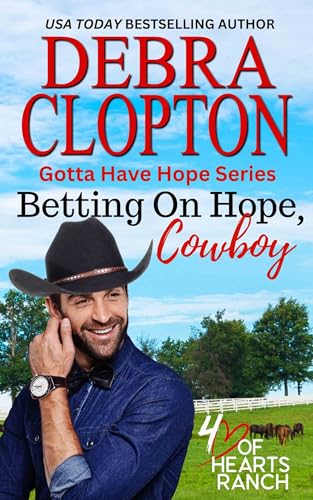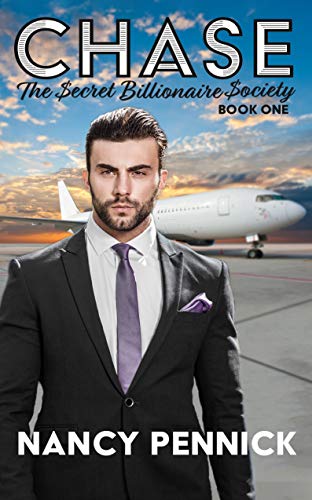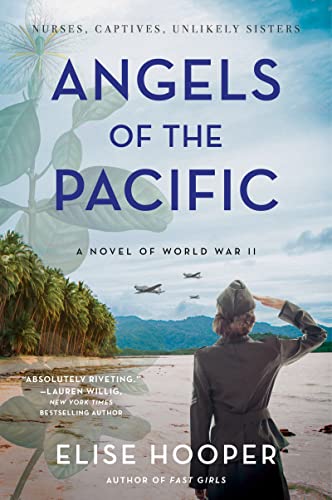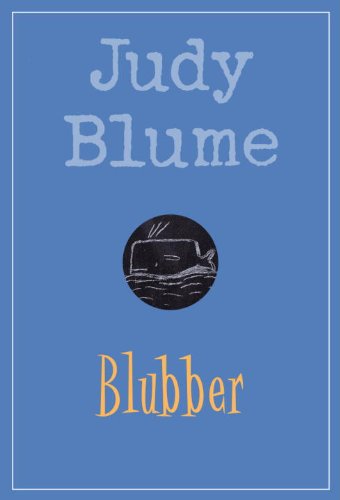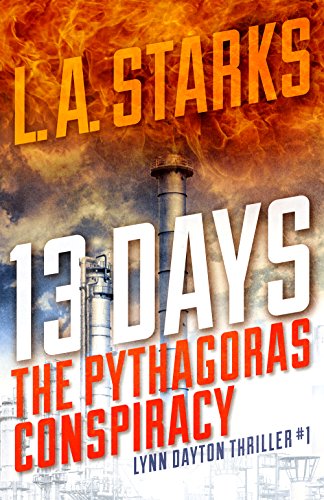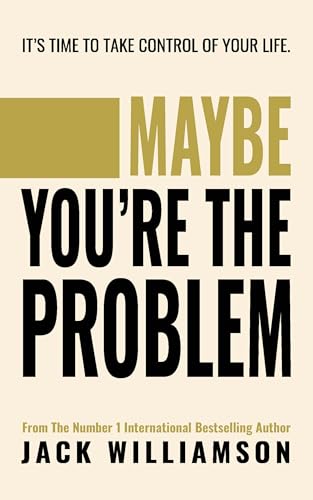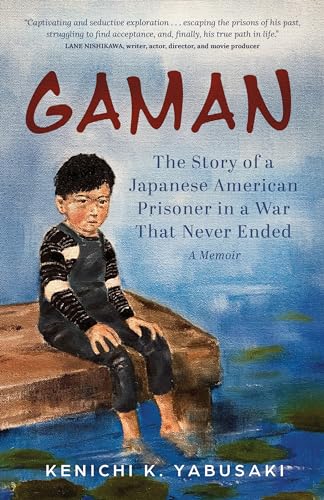Mystery & Women Sleuths…
and 4.7 stars out of 44 reviews!
Author J. M. Griffin calls her Vinnie Esposito series “mysteries that tickle your funny bone” — and readers just can’t seem to get enough…
Once again, Vinnie finds herself in the middle of murder, mayhem and miscellaneous misadventures — not to mention her hunky boyfriend and sexy tenant.
Don’t miss Cold Moon Dead
while it’s just 99 cents!
Cold Moon Dead (Book 4 Esposito Series)
by J.M. Griffin

Telling Vinnie Esposito to stay out of trouble is like telling a wolf not to howl at the moon.
But you can’t blame Vinnie this time. She’s just trying to be a Good Samaritan. How is Vinnie supposed to know that the little old lady, stranded at the side of the road, is a carjacker? And when Vinnie helps her artist friend paint a mural in a big, fancy mansion—how is she supposed to know that the owner is the biggest, most notorious, mobster in the state? And she can’t help it when she finds a dead body at the art show.
And next thing you know her parents are fighting; and her boyfriend, hunky State Trooper Marcus Richmond, is mad at her; and her sexy, upstairs tenant, FBI agent Aaron Grant, is up to something.
And Vinnie has to make everything right. But before she does that, it’s going to get even more wrong.
5-star praise for Cold Moon Dead:
Always enjoy a J.M. Griffin book
“… A couple of words into the book and you are right there into the thick of things along with Vinny and her cast of colorfullcharacters. Thoroughly enjoyed this light-hearted tale of misadventures.”
Hooked on Lavinia!
“…the story really sucked me…And then there are Marcus and Aaron — the perfect blend of sexual energy but written so beautifully that fits with the cozy mystery genre….”
an excerpt from
Cold Moon Dead
by J. M. Griffin
Chapter 1
The old woman leaned against the trunk of the dented rattletrap car. It had stopped dead, halfway into the low speed lane of the highway. Draping one bony hand across her forehead, she shook her head back and forth in despair—at least, it looked like despair.
I swerved to miss the car and swung my own vehicle into the breakdown lane, shoved the shift lever into reverse, and backed toward the woman. My heart pounded from the near accident, but the old girl was in need. Perhaps I could help. After all, it was winter and the wan countenance of the sun offered little respite from the cold wind.
Drawing up beside the beastly wreck, I shifted into park, dialed the local police station on my cell phone, and reported the accident. My Altima idled as I strode toward the run-down jalopy whose driver had also seen better days. I stuffed my cell phone and my hands into the pockets of my wool jacket.
The old woman glanced around before she hobbled forward. A worn, ragged coat hung on her frail shoulders while her heavy boots flopped about on feet that shuffled a bit. Thin wisps of gray hair tossed about frantically in the wind. Her bony, claw-like hands clutched a filthy crocheted handbag that resembled a shopping bag. A grimace covered the prune-wrinkled face as the woman drew closer.
Mean eyes glared, and though I hadn’t caused her breakdown, I braced myself for a lecture on my poor driving skills. It wouldn’t be the first time I had received one of those.
“You dang near kilt me, young woman,” she said with a near snarl.
“I wasn’t expecting a car to be in the lane when I crested the hill,” I answered defensively. “I-I’m sorry if I frightened you.”
“It ain’t my fault the danged thing broke down, ya know.” She scratched her head with dirty fingernails. I stepped back in case there was a chance lice might jump from her to me. “The least ya can do for an old woman is to give her a ride, eh?” She stared at my car, then gave me the once over.
I caught the malevolent glitter in her eyes for just a second before she glanced away. Taken aback, I nodded and agreed to give her a ride. Disney’s Snow White, the old witch, and the poisoned apple popped into my head. While it was only for a split second, the image left me on edge. It took a mental head slap to force my mind back to the present situation.
Filled with trepidation, I asked, “Where were you going?”
“Just to Olneyville. Do you know where that is?
I nodded.
She continued. “You can drop me near the triangle. What’s yer name, missy?” she asked as she clopped toward the passenger side of my Altima.
“Lavinia Esposito, but my friends call me Vinnie,” I mumbled, wondering if the car would need fumigating after she got out. I hustled along, clicking the door lock open using the electronic key fob.
Within seconds, we were headed toward an area of Providence that had once been a hub of activity. Now it was simply rundown and filled with shady characters. Abandoned stores were boarded up, nightclubs stayed open until the early morning hours creating havoc, and tenement houses stood shabby and forlorn. This was the neighborhood of hookers, drug dealers, drunks, and punks. Even the cops disliked being dispatched to calls in this area.
Nestled into the seat, the old woman rubbed her hands, red with cold, together. The oversized handbag rested on her lap. She started to rummage through it. With a deft motion and a sound of satisfaction, the hag pulled out a snub-nosed .38 Special, Smith & Wesson. The gun was pointed at me. My stomach dropped to my feet as my heart jumped into my mouth. Christ!
“Just get off the road, Lavinie.”
“It’s Lavinia,” I murmured. I glanced at her, and tried to stay calm. “This isn’t necessary. I will have your car towed. I-I didn’t mean to nearly h-hit you, honest,” I stammered while my sweaty hands gripped the steering wheel.
“Don’t be stupid. Just do what I say and you’ll be fine.” The small, yet deadly handgun waggled. Her bony finger rested on the trigger. I couldn’t tell if the safety catch was on or not.
Dry-mouthed and scared witless, I steered the car off the main drag into a low-life neighborhood. In a split second I wondered whether I was worse off with this nightmare of a woman than on these mean streets. Either way, my situation sucked. If I didn’t do as she said, she might shoot me. If I did what she said, I might get mugged. Rather than be shot, since I have a serious aversion to blood, I figured I had a better chance on foot in daylight, even in a neighborhood such as this. With my height just short of the six-foot mark, and the ability to handle myself in a life-threatening situation, I figured I could manage this.
The car slid to a halt at the curb and the old harridan motioned for me to get out, with an order to stand in the center of the street. I grabbed my Louis Vuitton handbag but filthy, gnarled fingers whipped it from my grasp.
“You won’t need this, but I will, Lavinie.” She cackled, stepped from the car, and came around to slide into the driver’s seat as I got out, holding the gun on me all the while. She seemed adept at this holdup stuff, leaving me to wonder how many times she’d done it before.
I glanced around the windswept street in case anyone saw her and the gun. I was certain nobody would call the cops. They would close their drapes instead. This was a neighborhood where people refrained from involvement in things that didn’t concern them. Stepping back, I watched my car slide away and screech around the corner out of sight.
I reached into my pocket for my cell phone. When I dialed the Providence Police Department and relayed my story, the dispatcher asked if I was injured. I said only my pride had suffered from the incident. A snicker crossed the line. She said she would put the call out. I asked if she would dispatch Officer Banger, since I knew this was Freedom’s patrol district and that she was on duty. Dispatch said she’d relay the request.
I figured I was in for some ribbing over the robbery. Since I teach criminal justice, date a Rhode Island State Trooper, and have an undercover FBI agent as a tenant, the ribbing was certain. There might be some concern for my welfare mixed in for good measure, though. So not all was lost.
Freedom Banger was a tough cop, but never stupid. She would always recommend stepping away from a gun. This thought offered me some comfort while I awaited her arrival. As a Providence cop who’d been on the force for nearly eighteen years, Freedom had a quirky personality. She saw humor in things most people didn’t and was always suspicious of everyone and everything. If Freedom liked you, and thought you needed a hand, she would move heaven and earth to help you. On the flip side, it was just plain stupid to get on her last nerve.
Impatient, I paced the sidewalk, anxious to leave the area. A smart-looking black BMW rounded the corner and slowed to a stop next to me. Dark tinted windows made it impossible to see inside. With my luck, it was the old broad and she had robbed someone else, then come back to shoot me for kicks.
Mid-step, I paused on the sidewalk and stared at the car. The window slid down—smooth and silent. A black dude, with an earring the size of the Hope Diamond suspended from his earlobe, stared back from behind an expensive pair of sunglasses. His hair was cropped with a Z-cut to the scalp on one side, above his ear. A backward baseball cap tilted haphazardly atop his head. He grinned at me. I noticed his front teeth had a gap and were rimmed with gold. Now that’s attractive, I thought with disgust.
“Yo sistah, wha’s up?” he drawled, like the homey he was. A homey with a car, a very nice car. I didn’t have a car.
“Nothing’s up,” I answered with a quick glance around. Where was Freedom, and what was taking her so damned long?
“You are one fine bitch. Wanna take a ride and join me for a little action?” He gave me a lewd smile, lifted the sunglasses off his face and wiggled his eyebrows at me.
“Do I look like some hoochie momma to you?” I asked with a hand on my hip, my temper flaring.
“Well, who the hell else would be walkin’ these cold, mean streets at this time of day in those fine clothes?”
“Move along. I’m not interested in doing anything with you.”
“You sure?” He grinned. “I know how to satisfy a woman such as yoself.”
“I said, ‘I’m not interested.’” I actually yelled it, rather than said it.
I took a step toward the car and had just raised my high-heeled, booted foot to kick the door when the car raced away. My temper was out of control, and so was I. A hand waved to me out of the car window and the homey flipped me off. Could my day get any better?
Within minutes, I heard the siren and watched Freedom’s cruiser slide to a halt at the curb. Her grin held a smart-ass curve to it. It was then I realized I would never live this event down. I cringed at the thought. The story would make the rounds of the police department and beyond. I would have to listen to snide remarks from cops and students alike, until the next time anyway.
That’s what happens when you’re in a job like mine. I teach Criminal Justice at a local university, to cops, or Five-Os, as they’re called. They mix it up with my other students that tend to be law students and security personnel. In the process I witness a lot of human interaction that borders on the ridiculous. The security people take an immense amount of insults from the cops. They are called names like Flashlight Cops, Two-Point-Fives, or Wannabes. I know, it’s not fair. I often feel like I’m in a room full of kindergarten kids—ones with deadly weapons and gigantic egos. One thing is for sure though, my life is never, ever mundane and this morning’s events proved that to be true.
“What the hell happened, Vin?” Freedom snickered as she got out of the car. “Are you all right?”
I glared down at her for a moment. I tower over Free who stands around five-foot-five. Her rich brown hair was tied back at the nape of her neck, and she held herself in a tough guy stance, hands resting on the fully loaded sixty-pound police utility belt slung around her waist. A grin hovered around the corners of her mouth as her brown eyes twinkled.
“Some old broad had broken down in the low speed lane of the highway. I stopped to help and gave her a lift. The bitch pulled a .38 out of her bag, offered to shoot me, and stole my freakin’ car.” My hands clenched and I paced back and forth as I ranted. “If that wasn’t bad enough, she stole the freakin’ Louis Vuitton handbag that I just got.” I left out the homey pickup attempt. I had enough to live down, thank you.
Freedom burst into laughter, patted me on the back in a reassuring manner, and motioned for me to get in the car. She climbed into the driver’s seat, mumbling into the radio attached to her shoulder. We swung through empty streets onto the highway. I directed her to the place where the woman’s car had been, but it was gone. I glanced around, dialed the cops to ask if the car had been towed, and was told it hadn’t been.
“You were set up by an old broad,” Free said, overcome by laughter.
“Very funny, Free. Very funny.”
Cops have an odd sense of humor. I didn’t find anything remotely funny in the situation at hand. However, it had happened to me, and that made the issue up front and personal.
Free cast a sideways glance at me and said, “I’ll take you to the district station and make a report. You know the drill, right?”
“Yeah, I know the drill.” I stamped my foot on the floor and swore some more.
“Think of it this way, Vin . . . you’re still alive, right?” Her serious brown eyes turned on me.
With a grudging nod, I stared out the window as we drove through dreary winter neighborhoods.
The hole-in-the-wall district police station was set up for community policing. The cops kept the doors locked for fear of being shot, and didn’t answer when someone came to make a complaint—so much for community policing. The police chief figured if community stations were located within each of the nine districts of the city, it would promote feelings of goodwill between the officers and neighborhood residents. I smiled at the thought, though many residents might consider community policing another safety factor.
We entered the freshly painted concrete-block building. One wall held a mural of a police car. The department logo was painted on the front of the counter. I peered at the artist’s signature and realized my buddy, Lanky Larry, had done the work.
Round as a soup bowl and bald as a melon, Lanky Larry was gay, short in stature, big of heart, and sweet natured. He painted murals, and faux-finished walls and furniture in the homes of the elite in Rhode Island. He was also a good friend who had given me a hand on more than one occasion.
“You know this guy—the artist?” Free asked with a glance at me over her shoulder. Beckoning with a crook of her finger, she had me follow her through the room and down a corridor. The next small room held two computers, a fax machine, and a printer.
“Yeah, he’s a friend of mine . . . an awesome artist,” I answered with a grin.
“He slapped that mural on the wall like it was nothing. It blew me away,” she said, leaning back in the chair, away from the desk that held a computer. “I can’t even draw stick people.”
With a smile, I took the seat opposite her in the only other chair in the room that was the size of a closet. My gaze wandered the walls while we waited for the computer program to upload the report page. Gang insignia posters covered one wall. Photos of scumbags sent to federal prisons across the country covered another. I glanced at the map of the district and wondered what all the numbers meant, but didn’t ask.
Freedom asked questions. I gave her answers to the best of my recollection. I hadn’t paid a whole lot of attention to the old lady’s wreck of a car, but her appearance was emblazoned in my memory. We hadn’t gotten far when the radio attached to Free’s shoulder started to crackle. She was told to report to some incident or other.
In a flash she was out of the chair. I was instructed to wait until she got back. Where the hell was I supposed to go with no car anyway? Free flung the front door key at me, along with some cash, and said I should get coffee from the bakery across the street. I nodded. I followed her as she hurried out the door and watched her jump in her cruiser. With siren blaring and lights flashing, Freedom headed toward the scene at warp speed.
Chapter 2
Crossing the street, I sauntered into Sugar Cookies Bakery. The aroma of cinnamon and chocolate teased my nostrils. I stepped up to the counter and ordered a regular coffee. While the young girl poured the brew into a paper cup, I considered the glass cases filled with confections. Too many choices, so I settled for a sprinkle-covered donut. After paying—thank you, Freedom—I left the shop and headed back to the community police station. Sinking my teeth into the soft, sweet, yeasty goodness, I sighed. I earned that donut after what I’d been through.
I decided to wait at the empty front desk instead of the little cubby-hole in back where I was before. I discovered that the tall swivel chair behind the counter was fairly comfortable, even with its wrought iron back. Though my legs are long, my feet still dangled. I sipped the coffee, nibbled the donut, and savored every morsel while I leaned back in an effort to relax in the peace and quiet. The cops only used the station for bathroom breaks, to eat lunch, or write reports. Otherwise they patrolled the streets.
Time crawled while I waited for Freedom’s return. I could do nothing but wait, so I settled in and finished my snack. The day hadn’t started out so well, but I was feeling better.
A firecracker-like noise caught my attention. I slid off the seat and strode to the glass-paned door. Two ceiling-to-floor windows faced the street alongside the door and offered a clear view of a two-block area. A dark sedan sped past. I peered at the license plate and memorized the number.
A rugged, mid-height, gray-haired man, dressed in a worsted-wool sport coat, staggered backward and then turned toward the building. He saw me watching and then he stumbled inside the station when I opened the door. Blood trickled past the edge of the jacket cuff and down his hand toward his fingertips. I felt the donut in my stomach flip flop a couple times, as though it were alive. Pale, flaccid, sweaty skin covered his face. I helped him to the stool behind the counter. Heavy breaths puffed from his mouth as his chest heaved. I wondered if the old guy would drop dead right there, in front of me.
I raced into the bathroom and unrolled a long sheet of paper towels. I bunched them in my fist, returned to the old guy, and stuffed them into his free hand. By then he had removed his jacket to check out the injury. A small hole had ripped his white shirt open at the shoulder. Blood saturated the material.
Choking, I flew into the bathroom again.
The scrumptious donut made an ugly return, splattering across the floor before I could reach the toilet. Bent in half, I retched a couple of times and then straightened up to wash my face, rinse my mouth, and blow my nose. Disgust roiled through me as I glanced at the floor. I cleaned the mess, gagging the whole time, and then returned to assist the man out front.
Blood-soaked paper towels filled the wastebasket under the counter and the old man barked an order for more. I returned to the bathroom and brought the whole roll of towels back. The victim had a better handle on the situation than I did. I watched in squeamish awe as he dabbed up the blood and applied pressure with a wad of towels.
“You a cop?” He ground out the words.
“N-no,” I stammered, and swept my hair back from my face and off my shoulders. The hair flinging was a telltale nervous habit of mine, well known among my friends.
“You look familiar,” he said. “Do I know you?”
“I don’t think we’ve met,” I murmured, anxious to keep from throwing up again.
“What’s ya name?” he rumbled in a voice filled with pain.
“Esposito,” I said, wringing my hands. “Lavinia Esposito.”
“You from Cranston?” He huffed the question out on a strained sigh.
“Uh, yeah . . . originally.”
“I knew a woman who looked just like you. She had the same name.” He flexed the fingers of his hand while he spoke. “Your old man owned a pizza joint?”
“Um, yes, he did.”
“Gino Esposito, right?”
“Uh huh,” I said, keeping my eyes averted from the bloody sleeve and wads of paper towels soaked with blood.
“Call my doctor, kid. He’ll come’n get me.”
“Don’t you think we should wait for the cops?” I asked, hoping he’d go along with my suggestion.
“Nah, they’re a bunch of dopes. They’ll ask a string of questions I won’t answer. Just call this number, and ask for Louie-the-Lug.” He recited a number that I dialed on my cell phone.
A high-pitched, nasal voice answered on the first ring. I asked for Louie-the-Lug before handing the phone to the injured man. I tried hard not to listen—well, maybe not that hard.
“Come here’n get me,” the man ordered. “Get here fast. I have a slug in my shoulder and it’s friggin’ killin’ me.” He gave instructions to our location and flipped the phone closed before he handed it back to me.
“What’s your name?” I asked.
“Never mind that. You just forget you ever met me, right?” He turned a stern, dark-eyed glare on me. “Not a word to the cops and get rid of this basket of bloody towels, got it?”
“Okay, fine,” I said, lifting my hands in a stop motion.
Shortly, a car pulled to the curb—a small black Datsun, new and shiny. A pudgy man with three hairs combed sideways over his bald dome got out. He rolled around the side of the car and entered the station.
“I won’t forget your kindness, Lavinia,” the man said. He stumbled out the door and into the Datsun, assisted by the man I could only assume was Louie-the-Lug.
Muddle-minded, I watched the car scoot from the curb and take a right at the traffic light on the corner. Once he was gone, I used a plastic bag from under the counter to scoop up the stained bag from the basket. I gagged and my stomach rolled as I tied it all in a neat bundle and hustled outside to throw it in the community trash bin at the side of the building. Replacing the old bag with a new one, I went into the bathroom to scrub my hands, even though they weren’t dirty.
I stared at my reflection in the mirror. For a minute, I was undecided on what course of action to take. It wasn’t smart to fail to report a shooting, let alone assist someone with a gunshot wound. As an instructor of law and order, I was well aware of the implications and possible consequences. The paper towels crumpled in my dried hands. Leaning against the wall, I ran a hand across my forehead and breathed out a deep sigh.
In a flash, my day had gone from bad to horrid. I needed to talk to my father before making any plans. This man might know my dad, and it seemed prudent to find out whatever I could to make an informed decision . . . right? Reluctant to place that call, I paced the office a few times, tapping my lips with my forefinger. If I didn’t ask, I wouldn’t know, and I had to know everything. My main problem in life is not just that I often find myself in unusual circumstances, but that I am endowed with an overabundance of curiosity that bodes ill for me—most of the time.
I dialed up the number as my anxiety rocketed to new proportions. The phone rang a few times and I considered hanging up. Just when I had decided to leave my father out of this, he answered the call. Dang!
“Hi, Dad. It’s me, Lavinia.”
“And?” His deep voice rumbled.
His old-world, Italian attitude was the usual state of affairs. My father and I go head to head often, but he is my dad and I am his only daughter, so . . . he wished that I would marry, settle down, produce a pack of little monsters, cook pasta, and truck everyone to soccer practice. Those were never going to be on my ‘To Do’ list. I like kids—just as long as they’re other people’s kids. My brother, Giovanni, is a doctor in Nebraska and does no wrong in the eyes of my parents. Conversely, I am not viewed with those particular rose-colored glasses.
Don’t get me wrong, my parents love me . . . it’s just that Gio has an approved profession, a wife, and they live a mundane existence—it’s mundane in my estimation, anyway. After all, how exciting could the cornfields of Nebraska be?
My father is of the opinion that I work a man’s job and live too dangerously. He also disapproves of the fact that I hang out with cops and he continually points out how I have picked up bad manners and other poor habits from them. Well, not everyone is perfect.
“Dad, I recently met a man who says he knows you. He has gray hair, a rugged build, and hangs out with a guy named Louie-the-Lug. What’s his name, do you know?” The phone was silent for so long I thought I’d lost the connection. I shook the small piece of equipment, tapped it on the counter, and stared at the face of it. The line was still open, so I asked, “Dad, are you there?”
“Are you on the Hill?” he murmured in a resigned voice.
“No, I’m at a community police station waiting for Freedom Banger. Remember her?”
“I do.”
“So do you know this guy or what?”
“He’s a businessman from the Hill. That’s all I can tell you . . . other than his name is Tony Jabroni. I want you to stay as far away from him as you possibly can without leaving Rhode Island.” He sighed and asked, “Do you understand?”
“I got it. I was only curious since he knew about your pizza restaurant and all.” A businessman from the Hill? That word ‘businessman’ covered a lot of ground when it came to those who hung out on Federal Hill.
“Where did you meet him?”
Time to lie by omission. I was on the fast track to hell, so what was one more lie on top of all the others? Lying by omission was a gift I’d been given at birth and it had become second nature whenever I found myself in a tight spot.
“He stopped by the station for a minute. This guy, Louie, came and picked him up.” It wasn’t a lie . . . not really, I’d convinced myself.
“Huh. You’re sure that was all?”
“Uh huh.” I lied again. “I’ve got to hang up. Freedom just came back from a call. I’ll talk to you later, Dad.” I disconnected and settled on the stool in the silent building, all by myself.
The ‘Hill’ is Federal Hill. Once known as the Italian mob mecca, it’s now an ethnic mix-and-match affair located in the City of Providence. Long ago the area was inhabited by all manner of cutthroats and thieves. The Mafia had owned Federal Hill and thrived on lots of bad guy stuff. Over the years, they were downsized by the FBI with help from the local and Rhode Island State Police. Mafia families had all but disappeared, humbled by jail sentences in federal prisons across America. Business was bad. Things fell into decay.
But alas, as with everything, there’d been a resurgence of mob activity lately, but more hush, hush than ever.
The police computer sat handy, so I typed Tony Jabroni’s name into the search engine. It took a minute, but more information than I thought possible scrolled across the screen. He wasn’t Mr. Nice Guy, but a thug with a long list of problems with the law. I read on and on. Afraid I would get caught on the computer, I finally clicked the window closed and brought back Free’s report page.
While I wondered if anyone had seen Tony get shot, I called my friend and confidant, Lola Trapezi, to ask if she’d be able to make the trip to Providence to pick up my sorry ass. After I explained what happened with the old woman, she snickered a bit. Then she asked if I was unharmed and agreed to come and get me. Lola wondered if I had spoken to Marcus—the main man in my life—about my unfortunate incident. I told her I hadn’t, and she shouldn’t either. With that said, I disconnected the call and waited, hoping no new disaster would arise before she arrived.
The Salt & Pepper Deli is located down the street from my house. Lola owns it and is an extraordinary chef. We have been friends for years. When I inherited my aunt’s two-level, monstrous colonial that held two apartments, Lola had been supportive in my life in general.
Aunt Lavinia, or Livvy as I called her, had been my favorite aunt. When she passed away a year before, I’d been devastated. I visited her grave often since it is only a few blocks from the house. Not only do I resemble Livvy, I bear her name, her figure, and her attitude. With strong Italian genes, the only thing I hadn’t inherited was the upper lip growth of hair—we all need to be thankful for something.
Within minutes of my call to Lola, Freedom strode through the door. She finished my stolen vehicle report, put the description of the woman and the car out over the air for other cops, and started another report on the call she’d just responded to. I hung around until the front door opened and Lola marched in.
… Continued…
Download the entire book now to continue reading on Kindle!
4.7 stars – 44 reviews
99 cents!!
(regular price: $2.99 –
deal ends 9.29.13)


